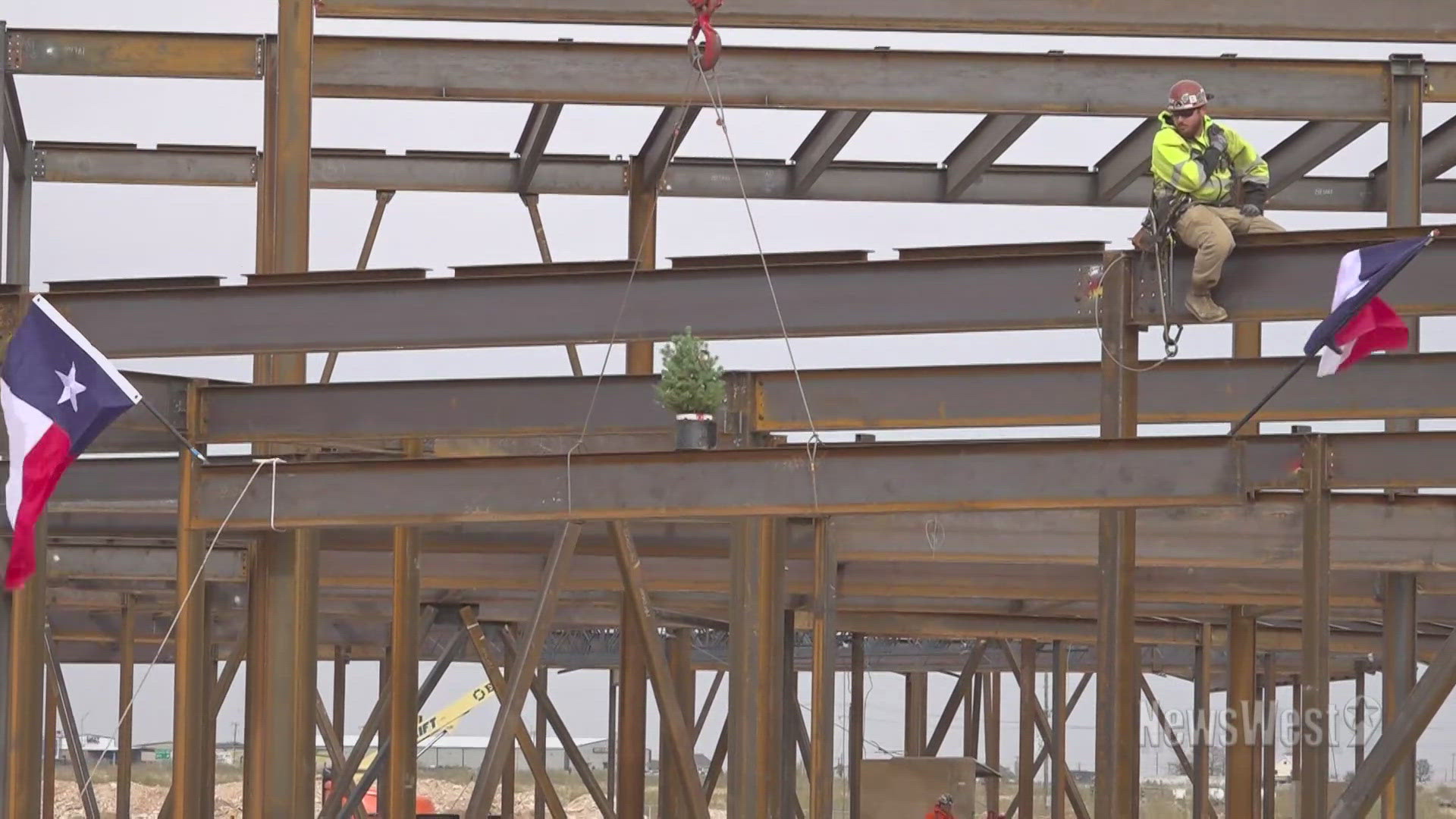MIDLAND, Texas — After a year of construction, a small crowd gathered near the Wagner Noel Performing Arts Center for the Permian Basin Behavioral Health Center (PBBHC) topping off ceremony.
The ceremony is a tradition that sees a steel beam rise up on a crane with a tree on top of it.
“When you reach the peak of a building like this - of any height - it's common for contractors to put a tree on top," PBBHC President Russel Meyers said. "It's a symbol of good luck and blessing for the for the facility.”
However, the ceremony also served a secondary purpose: showing everyone just how far construction has come.
“It's really stunning to see how big it is. You see it on plans, which are flat. You see it on drone videos, which are taken from pretty high up, but when you're out here on the site right next to it and you recognize that all this concrete still has to have steel put on it, it's a really big place," Meyers said. "225,000 square feet, 200 in-patient beds, lots of outpatient services, it's going to be big enough to serve this whole region.”
The total cost of the building is in the ballpark of $232 million, but that cost has been covered by privately-raised funds, state money and the help of some generous donors.
“It starts with [State Representative] Tom Craddick and [State Representative] Brooks Landgraf - representatives from Midland and Odessa - who helped us get the original state money to get this off the ground, around $40 million back in 2021," Meyers said. "We’ve now raised privately about 100 million dollars.”
However, there is still a lot work that needs to be done.
The whole project won’t be complete for another year and a half while the interior still needs to be finished.
One of the most important parts remaining is to make sure there is a proper workforce ready to treat the patients who walk through the doors.
“A building is not worth much if we can't put people in it who can do the jobs we need them to do," Meyers said. "We're working with our local institutions of higher education to build teams of people, to educate people to do the various jobs we have here."
Meyers said about one in three people have some kind of mental health diagnosis. He also believes there are not enough facilities right now to help everyone who needs it.
Which is why this health center is so important not just to these people, but to the community.
“The needs have gotten greater since Covid, lots of exacerbation of mental illness and new problems came up when people were out of their social environments for so long," Meyers said. "We've got a lot of work to do to properly care for those important mental health needs that all of us experience.”

